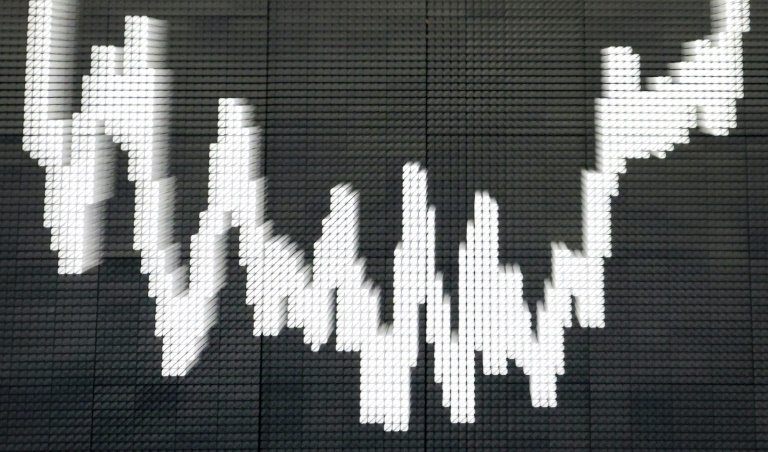
Asian markets were mostly lower on Friday following a broadly negative lead from Wall Street, where technology giants led profit-taking and traders were watching for intervention as the yen retreated to a 30-year low.
A string of weaker-than-expected U.S. data provided further signs that the world's No. 1 economy is weakening but it wasn't enough to lift the S&P 500 and Nasdaq to record highs.
The survey results showed that the number of people applying for unemployment benefits was higher than expected, housing starts fell and a key measure of business confidence fell sharply in June from May.
Minneapolis Fed President Neel Kashkari said it could take a year or two to bring inflation back to the central bank's 2 percent target, echoing warnings from his colleagues that they want to take their time in lowering borrowing costs.
Economic indicators raised hopes for interest rate cuts, but these were overshadowed by declines in share prices of major U.S. tech stocks such as Nvidia, Apple and Microsoft, which have been driving the recent rally in U.S. tech stocks.
Nvidia's shares fell 3.5%, meaning the company has lost its position as the world's most valuable publicly traded company to Microsoft, which it had overtaken earlier this week.
Asian traders followed the weak lead with Tokyo, Hong Kong, Shanghai, Seoul, Wellington, Taipei, Mumbai and Manila all falling, while Singapore, Sydney, Bangkok and Jakarta posted small gains.
“Last night's sell-off in U.S. tech stocks weighed on the market, while the dollar has also been broadly stronger in recent trading, which often weighs on Asian stocks,” said Chamath de Silva of BetaShares Holdings.
London, Paris and Frankfurt all opened lower after posting big gains on Thursday.
The yen is approaching its lowest level against the dollar in 34 years and suspicions of interference by Japanese authorities emerged in April, bringing renewed attention to the issue.
The dollar has strengthened against other currencies in recent weeks as expectations faded that the Federal Reserve will cut interest rates at least once this year, while the yen has been hurt by the Bank of Japan's reluctance to tighten monetary policy anytime soon.
The Bank of Japan is expected to announce further normalization measures at its next meeting, but the wide gap in yields between the two central banks has investors clinging to U.S. assets for now.
The yen fell from 157.80 yen to the dollar the previous day to around 159 yen to the dollar, but was barely moving on Friday.
For this reason, head of foreign exchange policy Masato Kanda reiterated that the government is ready to act if appropriate, but that it has moved too quickly, saying a 10 yen move in either direction this year would be too far.
Authorities are believed to have intervened two months ago when the yen fell below 160 yen to the dollar.
But analysts say the intervention will have little long-term impact.
Helen Given of Monex Securities added: “I am increasingly convinced that monetary authorities are giving up on the yen.”
“The yield gap is too large to overcome at this point, and with the US only considering one rate cut this year, it's unlikely to improve significantly anytime soon.”
– Key figures around 0715 GMT –
Tokyo – Nikkei Stock Average: Down 0.1% to 38,596.47 (closing price)
Hong Kong – Hang Seng Index: down 1.5% to 18,057.43
Shanghai Composite Index: down 0.2% to 2,998.14 (closing price).
London – FTSE 100: down 0.1% to 8,266.80
EUR/USD: Up to $1.0711 from $1.0705 on Thursday
Euro/pound: up from 84.56 pence to 84.63 pence
USD/JPY: Rise from 158.91 to 158.98
Pound/dollar: up from $1.2657 to $1.2659
West Texas Intermediate: down 0.2% to $81.16 a barrel.
Brent crude: down 0.2% to $85.54 per barrel
New York – Dow: up 0.8% to 39,134.76 (closing price)
Dan/DHW

